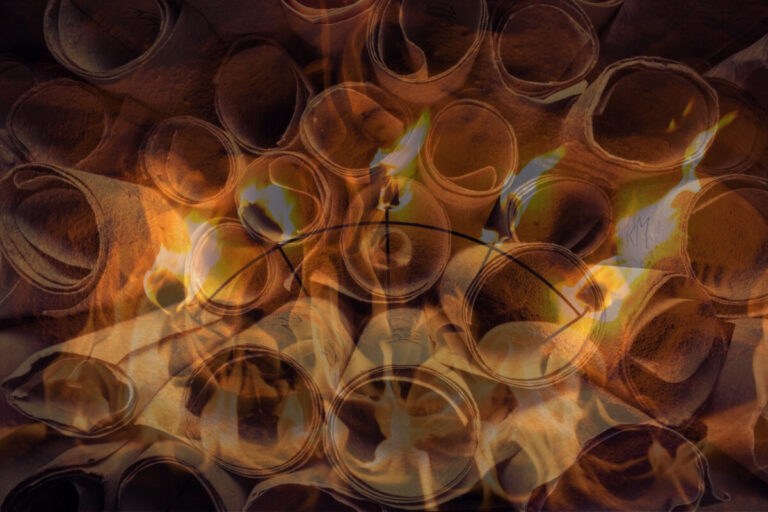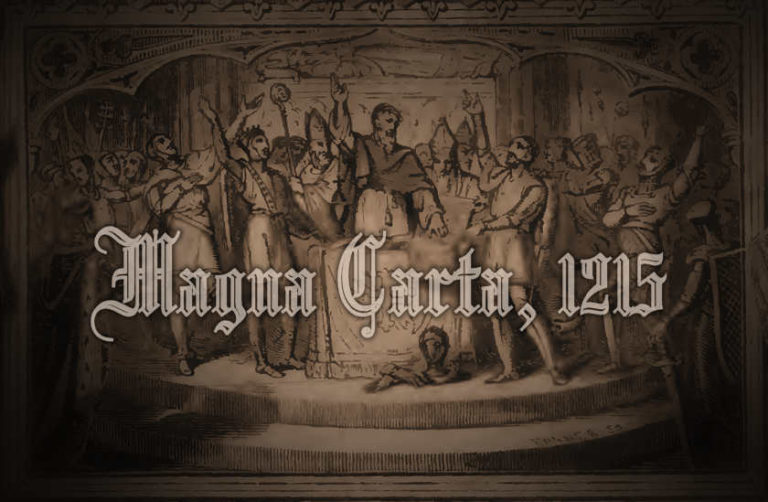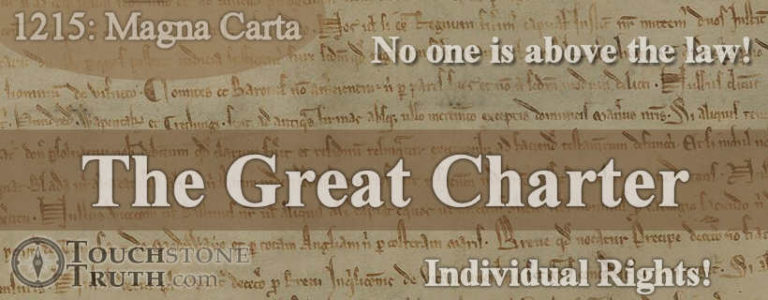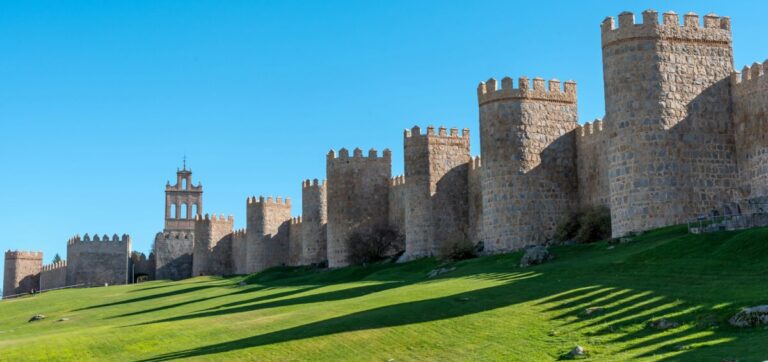For the period from 500 CE to 1500 CE, the appropriate terms to use are “Middle Ages,” or the adjective “medieval.” The term “Dark Ages” has been largely phased out in academic discussions. However, I find myself in the minority on this issue. I believe the adjective “dark” aptly describes Europe during this period. Historically, “Dark Ages” referred to an era of perceived regression, juxtaposed against the brilliance of antiquity and the enlightenment of the Renaissance.
Before presenting my arguments, it is essential to understand why the terminology evolved. Originally, “Dark Ages” described the European period between the 5th and 14th centuries, marked by religious dogmatism, economic downturns, cultural decay, scientific stagnation, and the fall of the Roman Empire. This era was defined by a shift towards organized religions, which replaced the diverse spectrum of belief systems ranging from minor cults to major religions with a variety of sects. While tolerance varied in antiquity, it was a key virtue, especially among scholars. However, as historical perspectives broadened to incorporate a more global view, terminologies adapted. Most modern historians contend that the term “Dark Ages” overly emphasizes Europe’s dark periods and unfairly minimizes the era’s global achievements, which included gradual but important advances in art, architecture, and other domains, even within Europe.
Despite not advocating for a revival of the term “Dark Ages” due to its inherently negative connotations and the natural evolution of labels, I occasionally refer to “the dark Middle Ages.” My argument for using “dark” stems from the significant impact the global spread of organized religion had on curtailing intellectual progress and the loss of previously known facts. While it is rare for a single factor to drive global events—a point that demands skepticism—I argue that organized religion, much like the printing press, transformed the world, though not always positively.
The core of my argument lies in the observation that the dominance of a singular religious story often led to the suppression and repression of alternative narratives and conflicting ideas. A poignant example is the loss of knowledge that the Earth is a globe, a fact well-established by 600 BCE through various observations such as the round shadows on the moon during eclipses, differing star patterns with changes in latitude, and the way ships’ masts disappear over the horizon.
Let’s explore.
Throughout history, there have been instances where individuals within certain religious groups, including Christians and Muslims, have destroyed cultural artifacts and committed crimes against humanity in the name of their beliefs. While it is important to recognize that such actions are not representative of the entire group, it is also crucial to acknowledge that these crimes were committed within the context of religious extremism and dogma.
It is therefore important to hold individuals and groups accountable for their actions, while also acknowledging that such actions do not reflect the beliefs and values of the majority within these communities. By working to prevent extremism and promote understanding and respect for diverse cultures and beliefs, we can create a safer and more inclusive world for all.
Throughout history, religious zealots have actively destroyed documents, art, and other cultural artifacts they deemed a threat to their made up beliefs. Yes, not all, and yes, not all the time. However, when a bad person with a match destroys something, it’s gone forever. There is no bringing it back. It only takes a few bad people to destroy history, create propaganda, and cause tremendous harm.
It is crucial to acknowledge that, throughout history, religious zealots driven by dogma have committed crimes against humanity. To address this issue, we must work collectively to hold extremists of all kinds accountable and prevent them from causing harm. In doing so, we should evaluate each act of hate and violence individually, avoiding false equivalencies and ensuring a fair assessment of these incidents.
There has been this effort to whitewash over the Middle Ages. To hide the fact that Christianity suppressed human thought out of fear of reality and truth.
Phrases like the following are dangerous:
“Christianity has had a complex and multifaceted impact on the course of human history, and it is vital to recognize both its positive and negative contributions. It is true that some Christians and Christian authorities played a significant role in the suppression of knowledge and the persecution of those who held differing beliefs during the Middle Ages.”
When you use phrases like “some Christians and Christian authorities” that’s akin to saying “Hitler was just one man.” True, but also propaganda. You should avoid saying phrases like that. Sure, not all Germans hated Jews and were directly responsible for murdering six million men, women, and children. But, it is a travesty to white wash over the fact that Germany as a country committed ethnic murder, genocide. That fact needs to be first and foremost in all writeups of the Holocaust, just as first and foremost, Christianity has to be at the forefront for the dark ages now known as the Middle Ages. They actively and aggressively sunk humanity into an ignorant time that lead to much suffering and a slowdown in scientific discovery.
Dark Ages, Nope! Now Middle Ages
Despite the scientific-oriented progress achieved by humanity up to about 500 CE, the rise of various religions starting around 200 CE contributed to the suppression of that knowledge, and to the lack of scientific progress during the Middle Ages. The rise of belief systems and power structures emphasized certain religious dogmas. During this time, the pursuit of truth was relegated to the shadows for over a millennium.
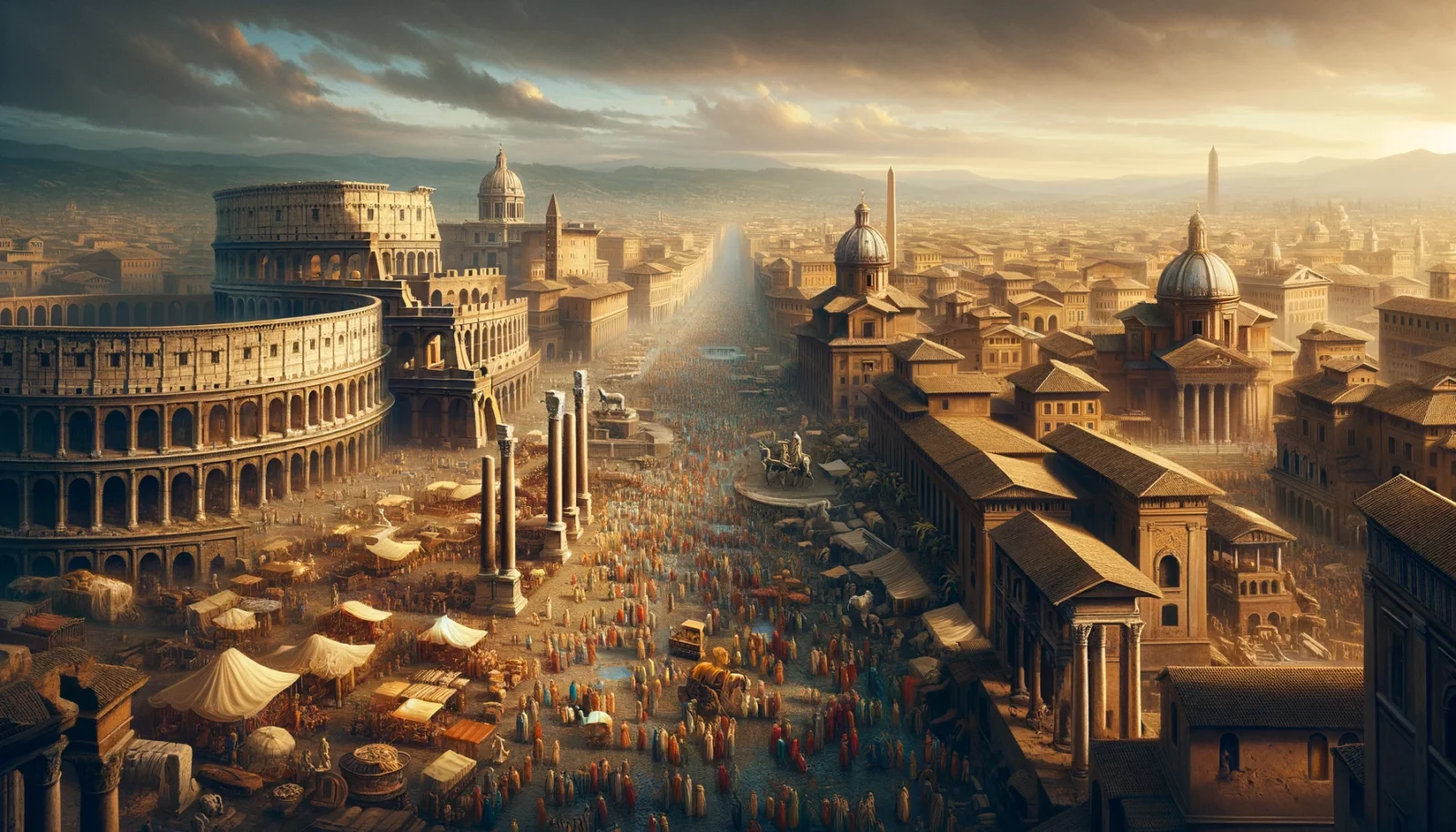
The period previously known in scholarly works as the Dark Ages is now the Middle Ages. This time period spanned from about 500 CE to the beginning of the Renaissance period around 1500 CE. The label “Dark Ages” has fallen out of favor over the years, but originally and accurately described the oppression and lack of scientific progress with the rise of various belief systems. Yes, some progress occurred, but only progress sanctioned by these belief systems or out of their reach. Belief system leaders all over the world oppressed the minds of humanity in order to suppress the true nature of reality because the true nature of reality did not match their dogmatic narratives which threatened their power and control.
The oppression of scientists and other thinkers during this time is clear, the evidence, overwhelming.
This dark period demonstrates the importance of freedom of conscience, which is as crucial now as it ever has been.
During the Middle Ages, Europe’s population growth did not keep up with global growth. While the world population grew from 190 million to 500 million people, Europe only grew from 30 million to 70 million people. This represents approximately 30% less population growth compared to the global average.
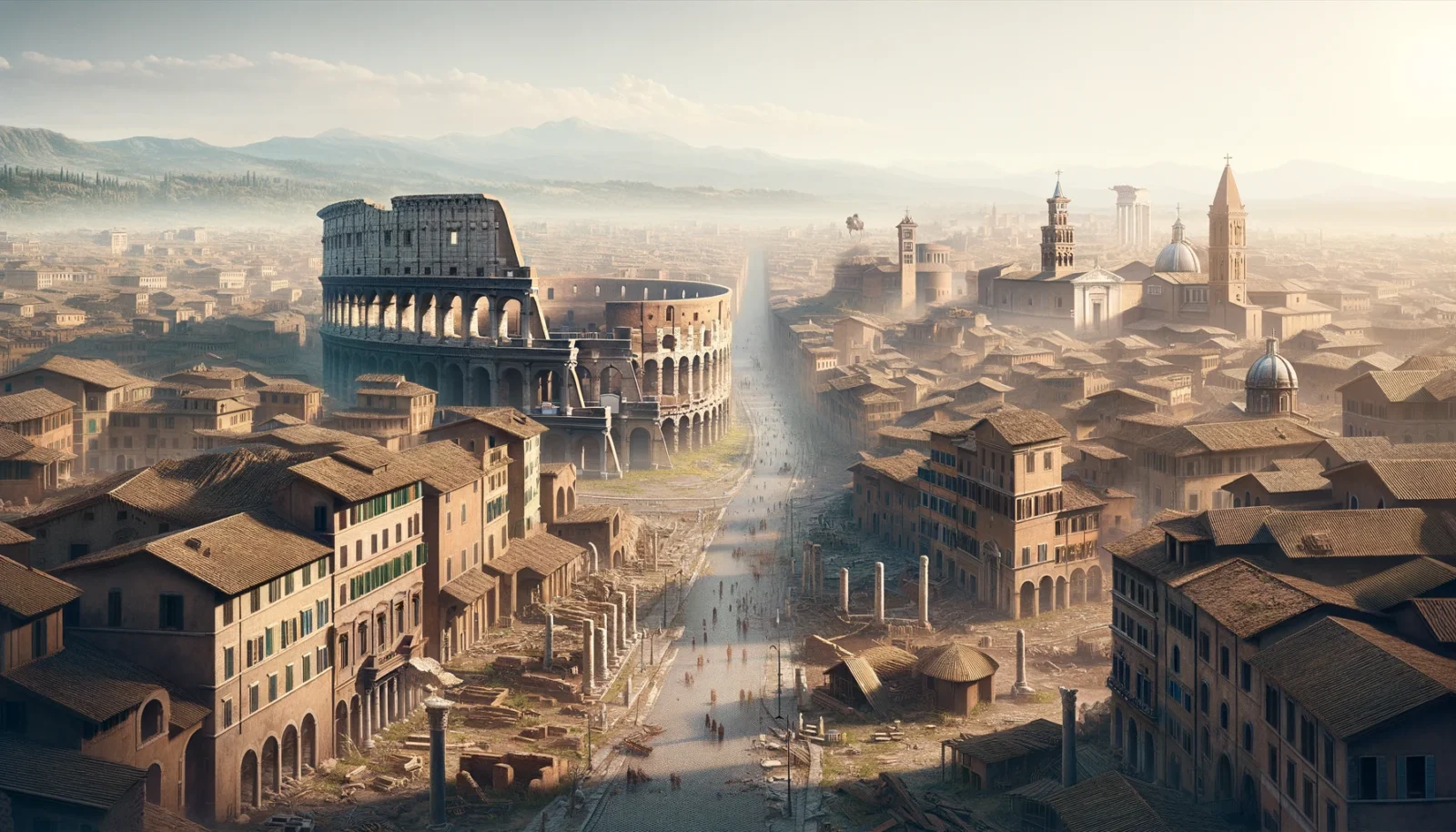
The term “Middle Ages” has replaced “Dark Ages.” The Middle Ages period is also referred to with the adjective “medieval,” from a Latin phrase meaning “middle ages.” I think it is important to respect shifting labels. Life is an ever-shifting river and labels, too, must adapt and evolve. I do frequently add an adjective when using the term “Middle Ages” to reflect the oppression of the period so you’ll frequently see me use it as in “the dark Middle Ages.” During the Renaissance, the light of reason began to slowly emerge once more, daring to challenge the prevailing beliefs and bring truth back into focus. This resurgence of reason eventually led to the Enlightenment period, the rise of reason. The modern era, or the rise of science, is fighting the good fight for truth, justice, and the logical way.
The Decline of Reason: A Complex Interplay of Factors
Several factors contributed to the decline of logic and reason and the rise of belief systems in the Western world. These factors include the rise of Christianity, the decline of the Roman Empire, the destruction of ancient libraries, documents, and artifacts, and natural disasters, along with the simple passage of time, which eventually destroys all things. Out of these factors, two stand out: the rise of Christianity and the destruction of libraries, documents, and artifacts.
It is important to recognize that religious zealots in pursuit of religious dogma have committed crimes against humanity throughout history, and we all need to work to ensure that all extremists on all sides are held in check. We must prevent them from committing crimes while at the same time evaluating each hate crime on its own, without creating false equivalencies.
The rise of Christianity, for instance, had both positive and negative effects. Positive for them, negative for everyone else especially for the progress of scientific thought. As Christianity gained prominence in the Roman Empire, it began to overshadow and suppress other philosophies and to persecute “others”. Many ancient works were deemed unimportant or heretical and were not preserved or copied, and most were actively and aggressively destroyed by specific evil Christians at specific times committing specific hate crimes. Christian leaders and theologians focused on preserving and promoting Christian texts, and actively allowed crimes against humanity by “turning the other cheek,” or worse, participating, or even worse, leading hate crimes. The crimes were not in the neglect, but in the active destruction of documents, the persecution of scientific thought, and the murder of scientists and philosophers.
With the rise of Christianity came the decline of the Roman Empire, which led to a period of political instability and social unrest, also contributed to the decline of reason. The loss of centralized authority and the fragmentation of the empire made it difficult to maintain libraries and preserve ancient works. The decline in education and intellectual pursuits during this time further exacerbated the loss of Stoic texts.
The destruction of ancient libraries by natural causes and acts of war played a significant role in the loss of many Stoic works. The most famous example is the Library of Alexandria, which held countless texts on various subjects, including philosophy. Its destruction, which occurred in stages between the 2nd century BCE and the 3rd century CE, resulted in the loss of many invaluable works. Other libraries, such as the Library of Pergamum and the Library of Antioch, also suffered damage or destruction, leading to the loss of many ancient texts.
Natural disasters, wars, and vandalism were additional factors in the loss of ancient texts. Fires, floods, earthquakes, and other natural disasters destroyed numerous documents, while wars and invasions often resulted in the destruction of libraries and other cultural centers. Vandals and looters might also have destroyed or stolen ancient works during times of unrest.
The decline of reason in the Western world can be attributed to a complex interplay of factors led here and there by dogmatic religious zealots. As we strive to understand this history, it is crucial to evaluate each instance of extremism and hate crime on its own merit, but also evaluate it using a holistic approach taking into account the religious systems promoting hate and intolerance of others. We must work to prevent such actions in the future. By doing so, we can better ensure that humanity progresses in a more inclusive, equitable, and enlightened direction.
27 Hate Crimes Against Knowledge Committed by Religious Zealots
- Hypatia of Alexandria (c. 370–415 CE) – Neoplatonist philosopher and mathematician, murdered by a Christian mob.
- Al-Razi (Rhazes) (865–925) – “The Book of Medicine,” criticized traditional Islamic medicine and advocated for rationalism; faced opposition and persecution.
- Al-Farabi (872–950) – “The Virtuous City,” integrated Greek philosophy with Islamic thought; faced accusations of heresy and unbelief.
- Gerbert of Aurillac (c. 946–1003) – later Pope Sylvester II, promoted scientific and mathematical knowledge; faced accusations of sorcery and opposition from conservative factions.
- Al-Hakim (985–1021) – Fatimid Caliph, promoted rationalism and opposed religious orthodoxy; faced opposition and was assassinated.
- Al-Ma’arri (973–1057) – “The Epistle of Forgiveness,” criticized religious dogma; faced opposition and was accused of heresy.
- Peter Abelard (1079–1142) – “Sic et Non,” questioned Church doctrines; condemned and forced to burn his book.
- Averroes (Ibn Rushd) (1126–1198) – Commentaries on Aristotle, advocated for the harmony of religion and philosophy; faced persecution, and his works were burned.
- John Wycliffe (1320s–1384) – translated the Bible into English, criticized the Church; posthumously declared a heretic, and his bones were exhumed and burned.
- Jan Hus (c. 1369–1415) – advocated for Church reform, criticized indulgences; excommunicated and burned at the stake.
- Johann Reuchlin (1455–1522) – “De Arte Cabalistica,” a work on Jewish mysticism; faced charges of heresy.
- Desiderius Erasmus (1466–1536) – “In Praise of Folly,” a satire on the Church; some of his works were placed on the Index of Prohibited Books.
- Michael Servetus (1511–1553) – “Christianismi Restitutio,” questioned the doctrine of the Trinity; burned at the stake.
- Giordano Bruno (1548–1600) – advocated heliocentrism, multiple worlds, and pantheism; burned at the stake.
- Tommaso Campanella (1568–1639) – “The City of the Sun,” a utopian work; imprisoned for heresy and sedition.
- Galileo Galilei (1564–1642) – “Dialogue Concerning the Two Chief World Systems,” supported heliocentrism; placed under house arrest by the Inquisition.
- Marin Mersenne (1588–1648) – defended Galileo and Descartes; his works faced censorship and condemnation by the Church.
- Pierre Bayle (1647–1706) – “Historical and Critical Dictionary,” criticized religious intolerance; his works were placed on the Index of Prohibited Books.
- Baruch Spinoza (1632–1677) – “Theological-Political Treatise,” criticized organized religion; excommunicated and his works were banned.
- John Locke (1632–1704) – “Two Treatises of Government,” published anonymously due to fear of persecution; advocated separation of Church and State.
- Isaac Newton (1642–1727) – hesitated to publish works on alchemy and theology due to fear of persecution.
- David Hume (1711–1776) – “A Treatise of Human Nature,” faced difficulties in publishing due to its skepticism and religious implications.
- Voltaire (1694–1778) – “Candide,” criticized the Church and religious intolerance; faced exile and imprisonment.
- Jean-Jacques Rousseau (1712–1778) – “The Social Contract” and “Emile,” criticized religious orthodoxy; faced persecution, and his works were burned.
- Denis Diderot (1713–1784) – “Encyclopédie,” aimed to secularize knowledge; faced censorship and imprisonment.
- Edward Gibbon (1737–1794) – “The History of the Decline and Fall of the Roman Empire,” criticized Christianity; faced condemnation and criticism.
- Thomas Paine (1737–1809) – “The Age of Reason,” criticized organized religion; faced charges of seditious libel in England.
Timeline of Events
The following timeline is interesting. Yes, it shows specific hate crimes by Christians and others where they actively suppressed scientific progress, but it also shows the general effect of time. The effect of natural disasters and wars in particular. In bold are specific hate crimes committed against knowledge.
- 410 CE: Sack of Rome by the Visigoths, which marked the decline of the Western Roman Empire and contributed to the decline of knowledge and scientific progress.
- 415 CE: The murder of Hypatia of Alexandria, a prominent mathematician, astronomer, and philosopher. Hypatia’s death was a symbol of the decline of intellectual inquiry in the late Roman Empire and contributed to the loss of scientific knowledge during the early Middle Ages.
- 476 CE: Fall of the Western Roman Empire, leading to the loss of many ancient texts and a decrease in intellectual activity.
- 529 CE: Closing of the Platonic Academy in Athens by Emperor Justinian I, ending the tradition of classical Greek philosophy.
- 529 CE: The closure of the Academy of Athens by the Byzantine Emperor Justinian I. This act marked the end of the Classical period of philosophy and hindered the advancement of scientific thought in the following centuries.
- 529 CE: The closing of the Neoplatonic Academy in Athens by Emperor Justinian, which signaled the end of the classical tradition of philosophy and hindered the progress of scientific thought.
- 532 CE: The Nika Riots in Constantinople, during which the city’s main library was burned, causing the loss of numerous scientific texts and setting back intellectual progress in the Eastern Roman Empire.
- 6th century CE: Justinian Plague, which claimed many lives and hampered intellectual and scientific pursuits.
- 610 CE: Islamic conquests begin, disrupting the intellectual and scientific climate in many regions.
- 642 CE: The Arab conquest of Alexandria, which led to the decline of the city as a center of learning and the eventual closure of its famed Library. This event marked the end of the Hellenistic period and disrupted the transmission of scientific knowledge from the classical world to later periods.
- 711 CE: Muslim conquest of the Iberian Peninsula, leading to the decline of Visigothic intellectual activity.
- 732 CE: The Battle of Tours, when Charles Martel halted the Islamic advance into Europe. This event slowed the transmission of Islamic scientific knowledge to Europe and delayed the cultural exchange that would later occur during the High Middle Ages.
- 793 CE: The Viking raids on the British Isles and the destruction of the monasteries, which were important repositories of scientific knowledge. The raids disrupted the transmission of knowledge and hindered the development of science in the region.
- 8th-9th centuries CE: Period of Iconoclasm in the Byzantine Empire, which led to the destruction of many works of art and intellectual centers.
- 800 CE: Charlemagne’s reign in Europe, which saw limited intellectual progress outside of his court.
- 830 CE: The Abbasid Caliph Al-Ma’mun’s attempt to forcibly impose the teachings of Greek philosophy on the Islamic world, which led to a backlash against the rational sciences and hindered scientific progress.
- 867 CE: The rise of the Macedonian dynasty in the Byzantine Empire, which marked the beginning of a period of cultural stagnation and the decline of the empire’s intellectual life, including a decline in scientific inquiry.
- 988 CE: The adoption of Christianity by Vladimir the Great of Kievan Rus’, which led to the suppression of local pagan traditions and the loss of indigenous scientific knowledge.
- 9th-11th centuries CE: Viking invasions in Europe, disrupting trade and intellectual life.
- 10th-11th centuries CE: European Feudalism and the decline of centralized governments, leading to a lack of patronage for intellectual pursuits.
- 1009 CE: The destruction of the Church of the Holy Sepulcher in Jerusalem by the Fatimid Caliph Al-Hakim bi-Amr Allah, which sparked a series of events that eventually led to the Crusades, a time of widespread violence and upheaval that hindered scientific progress.
- 1021 CE: The destruction of the House of Wisdom in Baghdad during the Mongol invasion. The House of Wisdom was a major center for the translation, study, and preservation of Greek and Persian scientific texts, and its destruction led to the loss of significant scientific knowledge.
- 1054 CE: The Great Schism between the Eastern and Western Christian Churches, which stifled intellectual exchange between the two spheres.
- 1066 CE: Norman Conquest of England, which disrupted the intellectual climate in the country.
- 1095-1291 CE: The Crusades, which diverted resources and attention from scientific and intellectual pursuits.
- 1194 CE: The burning of the Almohad library in Marrakesh, Morocco, by Christian crusaders during the Reconquista. The library contained numerous scientific texts, and its destruction hindered the transmission of scientific knowledge from the Islamic Golden Age to Europe.
- 12th-14th centuries CE: The Inquisition, which targeted heretics and suppressed intellectual freedom in Europe.
- 1204 CE: The sack of Constantinople during the Fourth Crusade, which led to the widespread destruction of the city’s libraries and the loss of countless scientific texts. The event marked a significant setback for the preservation and transmission of ancient scientific knowledge in the Byzantine Empire.
- 1277 CE: The Condemnation of 1277 by Bishop Etienne Tempier, which forbade the teaching of certain Aristotelian ideas at the University of Paris. This condemnation limited intellectual inquiry and hindered scientific progress.
- 14th century CE: The Great Famine and the Black Death, which caused massive population loss and hindered scientific progress.
- 15th century CE: The Wars of the Roses in England, which disrupted intellectual life and patronage.
- 1410 CE: The burning of the works of Jan Hus, a Czech theologian and philosopher, by the Catholic Church. This suppression of his ideas hindered the development of scientific inquiry in Bohemia.
- 1453 CE: Fall of Constantinople to the Ottoman Empire, marking the end of the Byzantine Empire and the loss of many ancient texts.
- Late 15th century CE: The Spanish Inquisition, which targeted non-Christians and suppressed intellectual freedom in Spain.
-
1492 CE: The expulsion of Jews from Spain, which led to the loss of a significant portion of the intellectual community and disrupted the progress of scientific research in the region.
- 1517 CE: Protestant Reformation, which caused political and religious turmoil, distracting from scientific pursuits.
- 1527 CE: Sack of Rome by Charles V’s army, which disrupted the intellectual climate and led to the loss of many ancient texts.
- 1534 CE: The Act of Supremacy in England, which established the Church of England and led to the dissolution of monasteries. This action disrupted the tradition of monastic scholarship and hindered the development of scientific thought in England.
-
1536 CE: The dissolution of the monasteries in England by King Henry VIII, which led to the dispersal of numerous scientific texts and the loss of patronage for scholars.
- 1543 CE: The publication of Copernicus’ “De revolutionibus orbium coelestium,” which was met with resistance from the Church and hindered the acceptance of the heliocentric model.
- 1559 CE: The publication of the Index Librorum Prohibitorum (List of Prohibited Books) by the Catholic Church, which included works by many prominent scientists and thinkers, such as Copernicus, Kepler, and Galileo. The Index hindered the dissemination and discussion of new scientific ideas.
- 1596 CE: The arrest and imprisonment of the French philosopher and mathematician, François Viète, for his cryptographic work on behalf of the French king, Henry IV. Viète’s arrest hindered the development of modern algebra and cryptography.
- Late 16th century CE: The trial and execution of Giordano Bruno, an Italian philosopher and scientist, by the Catholic Church for his pantheistic beliefs and support of the Copernican model. Bruno’s death served as a warning to other scientists who might have challenged the Church’s authority on scientific matters.
-
Late 16th to early 17th centuries CE: The suppression of the works of Paracelsus, a Swiss physician and alchemist, by the medical establishment due to his unconventional ideas on medicine and the human body. This suppression delayed the progress of medical science and the development of new treatments.
-
16th-17th centuries CE: The widespread persecution of witches in Europe, which targeted many women with knowledge of herbal medicine and other natural sciences. This persecution led to a loss of traditional knowledge and hindered scientific progress in the areas of medicine and natural sciences.
- 1600 CE: The execution of Giordano Bruno by the Catholic Church for his heretical views supporting the Copernican heliocentric model, which challenged the Church’s authority, which hindered the acceptance of new scientific ideas.
-
1600 CE: The burning of the Aztec Codices by Spanish conquistadors and missionaries, which led to the loss of valuable scientific knowledge about agriculture, astronomy, and medicine in the Americas.
- 1605 CE: The burning of the Mayan Codices by Spanish Bishop Diego de Landa. The Codices contained valuable scientific knowledge about astronomy, agriculture, and medicine, and their destruction contributed to the erasure of pre-Columbian scientific knowledge in the Americas.
-
1616 CE: The Catholic Church placed the works of Copernicus on its list of prohibited books and declared the heliocentric theory to be “false and contrary to Holy Scripture.”
-
1633 CE: The trial of Galileo Galilei by the Catholic Church for his support of the heliocentric model. Galileo was placed under house arrest, and his work, “Dialogue Concerning the Two Chief World Systems,” was placed on the Church’s list of prohibited books.
-
1665-1666 CE: The Great Plague of London, which led to the closure of the Royal Society, a major center for scientific research and discussion. The outbreak hindered scientific progress and delayed the publication of scientific works, including Isaac Newton’s “Philosophiæ Naturalis Principia Mathematica.”
- 1677 CE: The burning of Antonie van Leeuwenhoek’s microscope collection by a mob during a riot in Delft, which set back the development of microscopy and the study of microorganisms.
-
1679 CE: The suppression of the book “Philosophical Transactions,” published by the Royal Society, due to political pressures. The book contained the scientific works of several prominent scientists, including Robert Hooke, and its suppression hindered the dissemination of new scientific ideas.
-
1734 CE: The arrest and imprisonment of the French mathematician and philosopher Émilie du Châtelet for her work on Newtonian physics. Du Châtelet’s arrest delayed the publication of her translation and commentary on Newton’s “Principia Mathematica,” which was a key text in the development of modern physics.
- 1793 CE: The suppression of the French Academy of Sciences during the French Revolution, which disrupted scientific research and hindered the progress of science in France.
-
1798 CE: The French invasion of Egypt led by Napoleon Bonaparte, which resulted in the destruction of many ancient Egyptian artifacts and the loss of scientific knowledge about the civilization. The invasion also disrupted local scientific institutions and hindered the development of modern Egyptology.
- 1835 CE: The banning of Charles Lyell’s “Principles of Geology” in some European countries due to its controversial ideas about the age of the Earth, which delayed the acceptance of these ideas and the development of modern geology.
- 1859 CE: The initial rejection and controversy surrounding Charles Darwin’s “On the Origin of Species,” which slowed the acceptance of the theory of evolution and the development of modern biology.
Pre-Socratic Persecution
Persecution for what other’s belief has always been a problem including Socrates, Anaxagoras, and Protagoras. Here are their stories.
Socrates (c. 470–399 BCE) was a classical Greek philosopher who is credited with laying the groundwork for Western philosophy. He engaged in dialogues that challenged traditional beliefs and values, teaching his students to question everything and seek truth through reason. This made him unpopular with the Athenian authorities, who accused him of corrupting the youth and not believing in the gods of the state. In 399 BCE, Socrates was put on trial, found guilty, and sentenced to death by drinking a cup of poison hemlock.
Anaxagoras (c. 500–428 BCE) was an ancient Greek philosopher who proposed groundbreaking ideas for his time, such as the heliocentric model of the solar system and the existence of atoms. He also believed that the celestial bodies were made of the same material as the Earth, contradicting the prevailing belief that they were divine. His innovative ideas and refusal to accept traditional religious views led to charges of impiety. Anaxagoras was ultimately exiled from Athens, where he continued his philosophical pursuits until his death.
Protagoras (c. 490–420 BCE) was a Greek Sophist philosopher known for his relativistic views, which held that truth and morality were subjective and dependent on individual perspectives. He famously stated, “Man is the measure of all things.” Protagoras’ teachings and his questioning of the gods’ existence were considered offensive by many Athenians. He was charged with impiety and subsequently exiled from Athens. His works were burned, and only fragments of his writings have survived, making it difficult to form a complete picture of his philosophical beliefs.
Summary
Throughout history, individuals within religious groups, including Christians and Muslims, have committed crimes against humanity and destroyed cultural artifacts in the name of their beliefs. While it is crucial to acknowledge that these actions do not represent the entire group, it is important to hold individuals and groups accountable for their actions and work towards preventing extremism. During the Middle Ages, Christianity and the decline of the Roman Empire contributed to the suppression of knowledge and scientific progress. Many ancient works were destroyed or lost due to religious zealotry, natural disasters, and the passage of time. The decline of reason can be attributed to a complex interplay of factors, including religious extremism. It is essential to evaluate each instance of hate crime on its own merit and work collectively to prevent such actions in the future, ensuring humanity progresses in a more inclusive, equitable, and enlightened direction.
The emergence of belief systems characterized by enchantment, mysticism, paranormal intrigue, and supernatural fascination, collectively pushed science, reality, and truth into the shadows for more than a thousand years. Our journey to reclaim the light of knowledge and understanding persists to this day.
—


